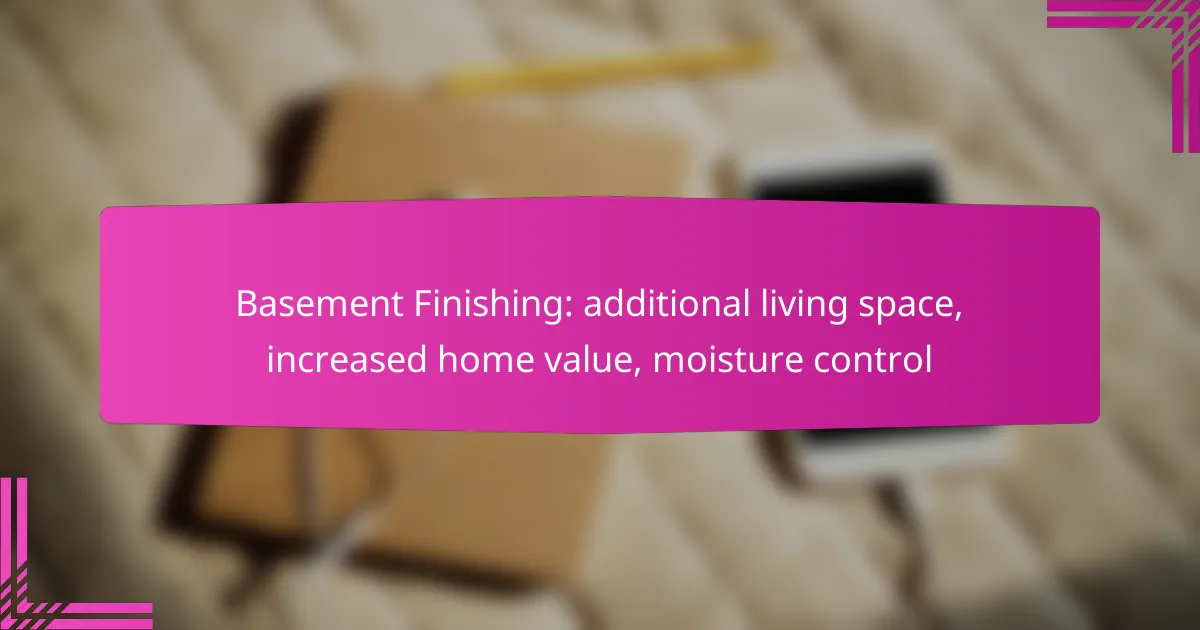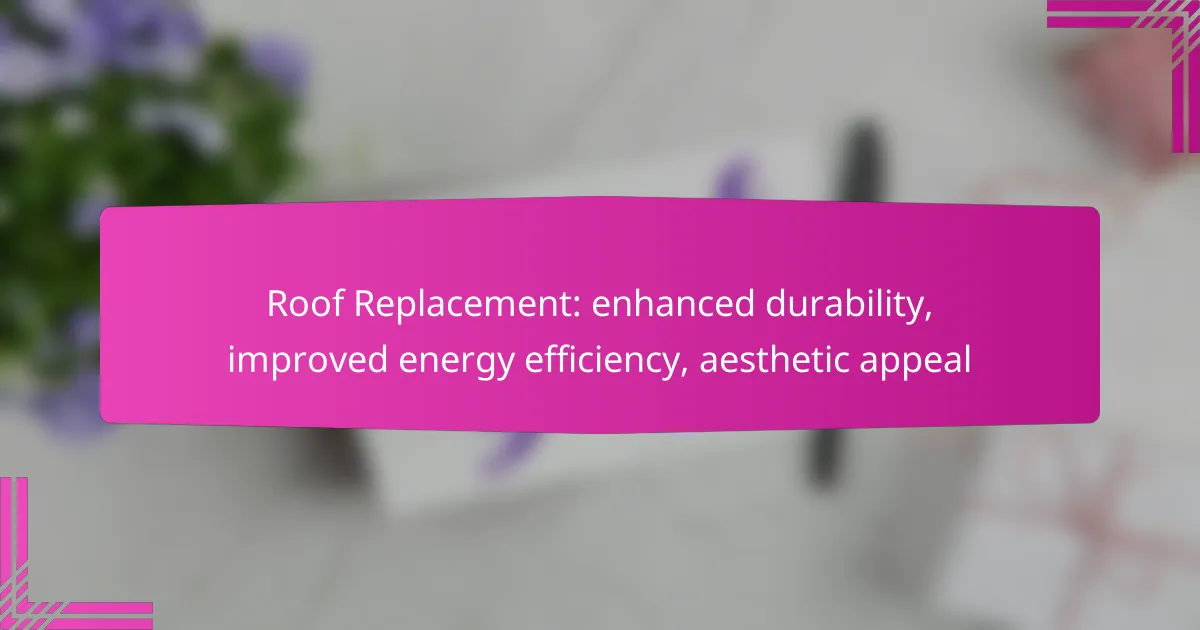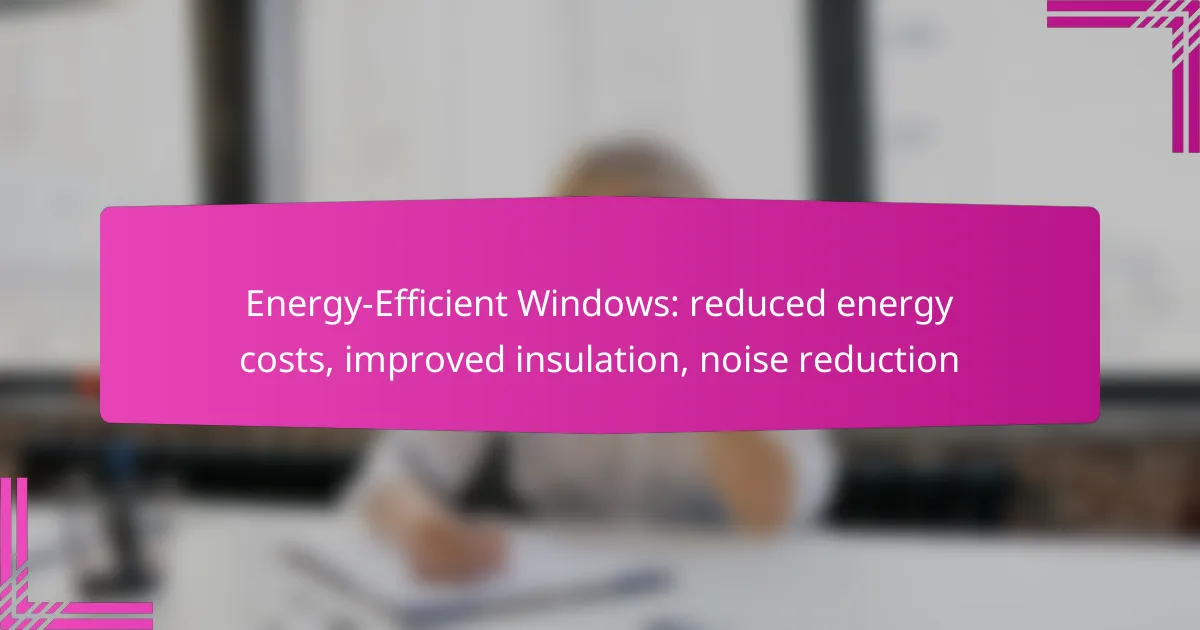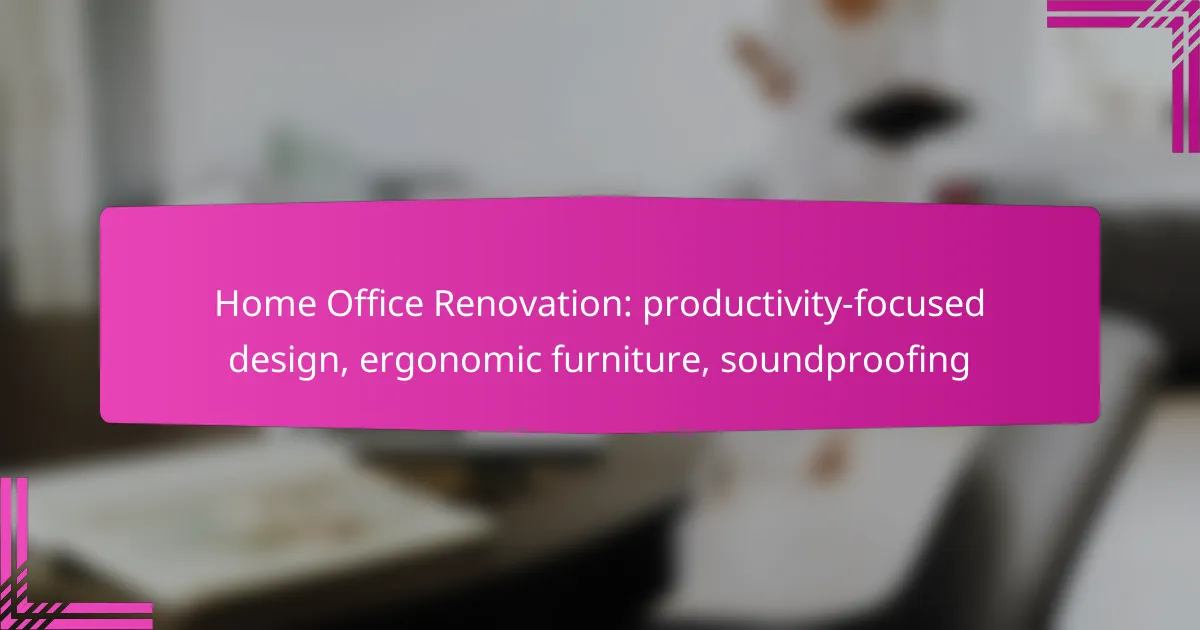Finishing a basement is an excellent way to create additional living space while simultaneously increasing your home’s value. By transforming this often-overlooked area into functional rooms, you enhance your property’s appeal and attract potential buyers. Effective moisture control methods are essential in this process, ensuring a safe and comfortable environment free from mold and structural issues.
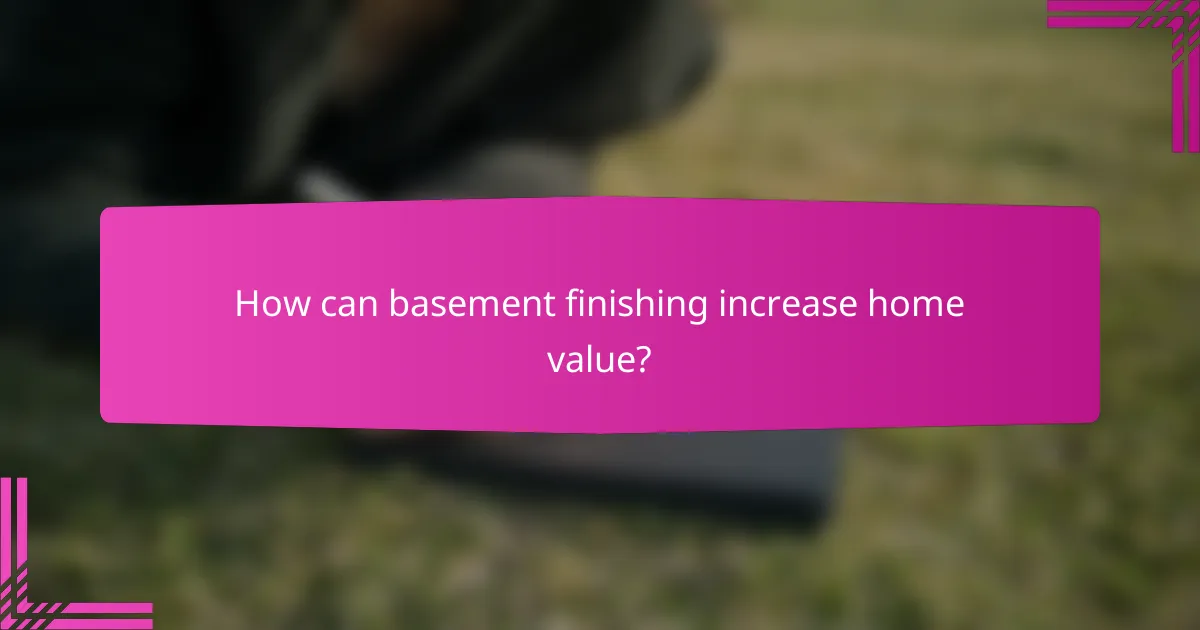
How can basement finishing increase home value?
Finishing a basement can significantly boost your home’s value by transforming underutilized space into functional living areas. This improvement not only enhances the overall appeal of your property but also makes it more attractive to potential buyers.
Higher resale prices
A finished basement can lead to higher resale prices, often adding thousands of dollars to the overall value of a home. Homeowners can typically expect a return on investment (ROI) of around 70-75% for basement finishing, depending on the quality of the work and local market conditions.
For example, if you invest $20,000 in finishing your basement, you might see an increase in your home’s value by approximately $14,000 to $15,000. This makes it a financially sound decision for many homeowners looking to sell.
Attracting potential buyers
A well-finished basement can attract a wider range of potential buyers, as it offers additional living space that can serve various purposes, such as a family room, guest suite, or home office. Many buyers are specifically looking for homes with versatile spaces, making a finished basement a strong selling point.
In competitive real estate markets, having a finished basement can set your property apart from others, increasing its desirability. This can lead to quicker sales and potentially multiple offers, further driving up the final sale price.
Improved property appraisal
Finishing your basement can improve your property’s appraisal value, as appraisers consider usable square footage when determining a home’s worth. A finished basement adds to the livable area, which can positively influence the appraisal outcome.
It’s important to ensure that the finished space meets local building codes and standards, as this can affect appraisal results. Properly done renovations that include adequate moisture control and ventilation will be viewed favorably by appraisers, enhancing your home’s overall value.

What are the best moisture control methods for basements?
The best moisture control methods for basements include using dehumidifiers, waterproofing systems, and drainage solutions. These strategies help prevent water accumulation, reduce humidity, and protect your living space from mold and structural damage.
Dehumidifiers
Dehumidifiers are essential for managing humidity levels in basements. They work by extracting moisture from the air, which helps maintain a comfortable environment and prevents mold growth. When selecting a dehumidifier, consider the size of your basement and choose a unit with a capacity that matches the square footage.
For optimal performance, aim to keep humidity levels between 30% and 50%. Regularly empty the water reservoir or opt for a model that can drain continuously to avoid maintenance hassles.
Waterproofing systems
Waterproofing systems are critical for protecting basements from water intrusion. These systems can include interior sealants, exterior coatings, and membranes that create a barrier against moisture. When applying waterproofing solutions, ensure surfaces are clean and dry to maximize adhesion and effectiveness.
Consider using products that comply with local building codes and standards. Regular inspections of these systems can help identify any wear or damage before it leads to significant issues.
Drainage solutions
Effective drainage solutions are vital for directing water away from your basement. This can involve installing sump pumps, French drains, or grading the landscape to encourage water flow away from the foundation. Sump pumps are particularly useful in areas prone to flooding, as they actively remove excess water.
When implementing drainage solutions, assess your property’s layout and soil type. Regular maintenance, such as clearing debris from drains and checking pump functionality, is essential to ensure these systems work effectively.

What are the costs associated with basement finishing in the US?
The costs for basement finishing in the US typically range from low tens of thousands to mid-hundreds of thousands of dollars, depending on various factors. Key elements influencing these costs include the size of the basement, the complexity of the design, and the quality of materials used.
Average renovation costs
On average, homeowners can expect to pay between $20,000 and $50,000 for a complete basement finishing project. This price range can vary significantly based on the scope of work, such as adding bathrooms, kitchens, or entertainment areas. For high-end finishes and extensive renovations, costs can exceed $100,000.
It’s crucial to obtain multiple quotes from contractors to ensure competitive pricing and to understand what is included in each estimate. This can help avoid unexpected expenses during the renovation process.
Cost breakdown by materials
The cost of materials can significantly impact the overall budget for basement finishing. Common materials include drywall, flooring, insulation, and fixtures, which can vary in price. For instance, basic carpet may cost around $2 to $5 per square foot, while hardwood flooring can range from $5 to $15 per square foot.
Additionally, plumbing and electrical work can add to costs, especially if new installations are required. It’s advisable to allocate about 20-30% of the total budget for materials to ensure quality without overspending.
Impact of location on pricing
Location plays a vital role in determining the costs associated with basement finishing. Urban areas or regions with a high cost of living typically see higher labor and material costs compared to rural areas. For example, finishing a basement in cities like San Francisco or New York may cost 20-30% more than in smaller towns.
Local building codes and regulations can also influence costs, as certain areas may require specific permits or inspections that add to the overall expense. Always check with local authorities to understand any additional costs related to compliance before starting your project.
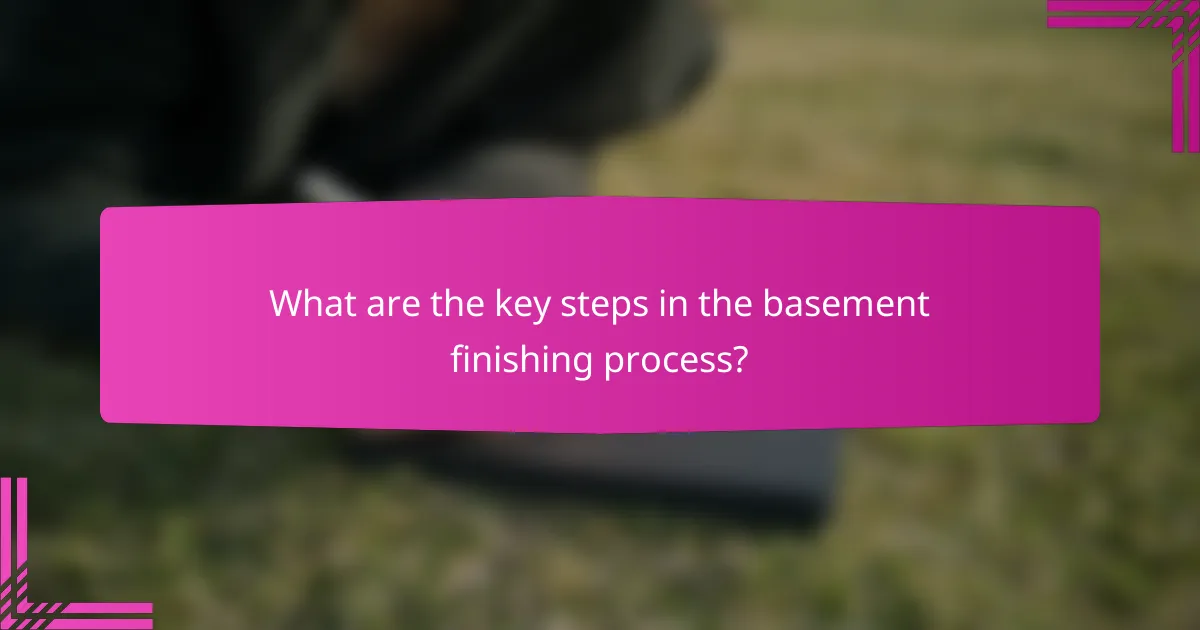
What are the key steps in the basement finishing process?
The basement finishing process involves several essential steps to transform an unfinished space into a functional living area. Key stages include planning and design, framing and insulation, and electrical and plumbing work, each contributing to the overall quality and usability of the finished basement.
Planning and design
Effective planning and design are crucial for a successful basement finishing project. Start by determining the intended use of the space, whether it’s for a family room, home office, or guest suite. Consider factors such as layout, lighting, and accessibility to ensure the design meets your needs.
It’s also important to check local building codes and regulations, as these can dictate aspects like ceiling height and egress requirements. Creating a detailed plan can help avoid costly changes later in the process.
Framing and insulation
Framing is the next step, where walls and partitions are constructed to define the space. Use treated lumber for any wood in contact with concrete to prevent moisture damage. Ensure that framing is level and square, as this will affect the installation of drywall and other finishes.
Insulation is essential for temperature control and moisture management. Use fiberglass batts or foam board insulation to meet local energy efficiency standards. Proper insulation can help maintain comfortable temperatures and reduce energy costs.
Electrical and plumbing work
Once framing and insulation are complete, it’s time to install electrical and plumbing systems. Hire a licensed electrician to ensure that wiring meets safety codes and can handle the load of new appliances or fixtures. Plan for adequate outlets and lighting to enhance functionality.
If your basement will include a bathroom or wet bar, plumbing work is necessary. This may involve running new pipes and ensuring proper drainage. Always consult with professionals to ensure compliance with local plumbing codes and to avoid future issues.

What are the benefits of hiring a professional for basement finishing?
Hiring a professional for basement finishing offers numerous advantages, including enhanced quality of work, efficient use of time, and expert knowledge of local building codes. These benefits can lead to a more successful renovation that maximizes your investment in additional living space.
Expertise and experience
Professionals bring a wealth of expertise and experience to basement finishing projects. They understand the complexities of design, layout, and construction, which can help avoid common pitfalls that DIY enthusiasts may encounter. This knowledge is particularly valuable in navigating local building codes and regulations, ensuring that your finished basement meets all necessary standards.
Additionally, experienced contractors can provide insights into the best materials and techniques for moisture control, which is crucial in a basement environment. Their familiarity with various styles and trends can also help you create a space that complements the rest of your home.
Time efficiency
Hiring a professional can significantly reduce the time required to complete your basement finishing project. Professionals have established workflows and access to resources that allow them to work more quickly and efficiently than most homeowners. This means you can enjoy your newly finished space sooner rather than later.
Moreover, professionals are adept at managing schedules and coordinating tasks, which minimizes downtime and delays. This efficiency is especially important if you have a specific timeline in mind, such as preparing for a family gathering or a new addition to your household.
Quality assurance
One of the key benefits of hiring a professional for basement finishing is the assurance of high-quality workmanship. Professionals typically offer warranties on their work, providing peace of mind that any issues will be addressed promptly. This level of quality assurance is difficult to achieve with DIY projects, where mistakes can lead to costly repairs.
Furthermore, professionals are equipped with the right tools and skills to ensure that every aspect of the project, from framing to finishing touches, is completed to a high standard. This attention to detail not only enhances the aesthetic appeal of your basement but also contributes to its overall durability and functionality.
